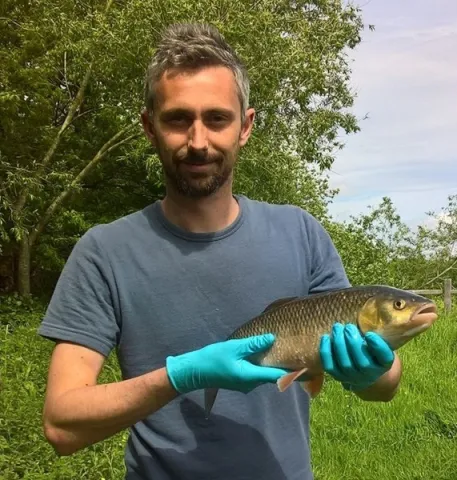About the project
This collaborative project led by the University of Southampton in partnership with The Piscatorial Society, Southern Water, and Wessex Rivers Trust will adopt an innovative approach to monitor a unique river and wetland restoration and regeneration project on the River Anton, Hampshire.
Chalk streams have been modified by humans for millennia for agriculture, navigation, flood risk mitigation, and hydropower. Compared to other river systems, they have received relatively limited attention.
Today, efforts to restore rivers to a more natural condition are widespread for the purpose of enhancing ecological condition, fisheries, and to reduce flood risk through natural flood management strategies. Nevertheless, there is often a lack of sufficient monitoring to quantify the effectiveness of such approaches, and where there has, results are often variable.
This project will quantify the physical, chemical and ecological response to restoration actions taken by achieving the following objectives:
- physical habitat quantification
- chemical habitat quantification
- ecological response to habitat modification
Physical habitat quantification will include mapping the depth, width, bathymetry, hydrodynamics, sediments, and woody material of the pre-existing channel prior to, and after, the restoration activities and compared with an unrestored local control site exhibiting similar pre-restoration characteristics.
Appropriate technical methods will be used including bathymetric and hydrodynamic measurements and GIS.
Chemical habitat quantification will include, for the same locations, the monitoring of chemical parameters including temperature, dissolved oxygen, nutrients, and turbidity using appropriate sensor technology.
Ecological response to habitat modification will include studying the ecological response for macrophytes, macroinvertebrates, and fish, monitoring using a range of techniques from simple quadrat surveys and kick sampling to detailed information on fish abundance and diversity and movement using electric fishing and appropriate telemetry techniques.
Working as part of an interdisciplinary team of biologists and engineers, you'll conduct a field study to quantify the effectiveness of the restoration approaches adopted at the study site.
You'll develop skills in:
- field study design
- kick sampling
- arc-boat surveys
- electric fishing
- fish telemetry
- statistical analysis (e.g R)
- GIS
- technical writing
You'll also develop interdisciplinary work in collaboration with engineers to solve challenges related to freshwater ecosystem restoration.

